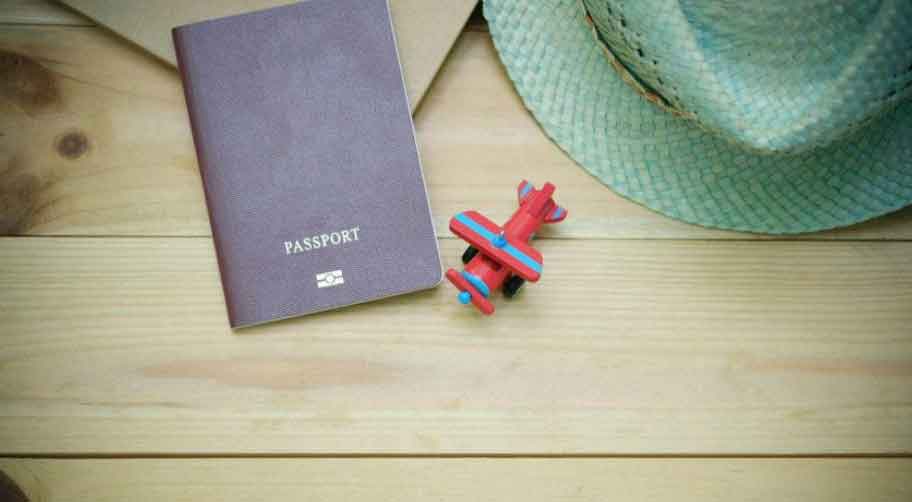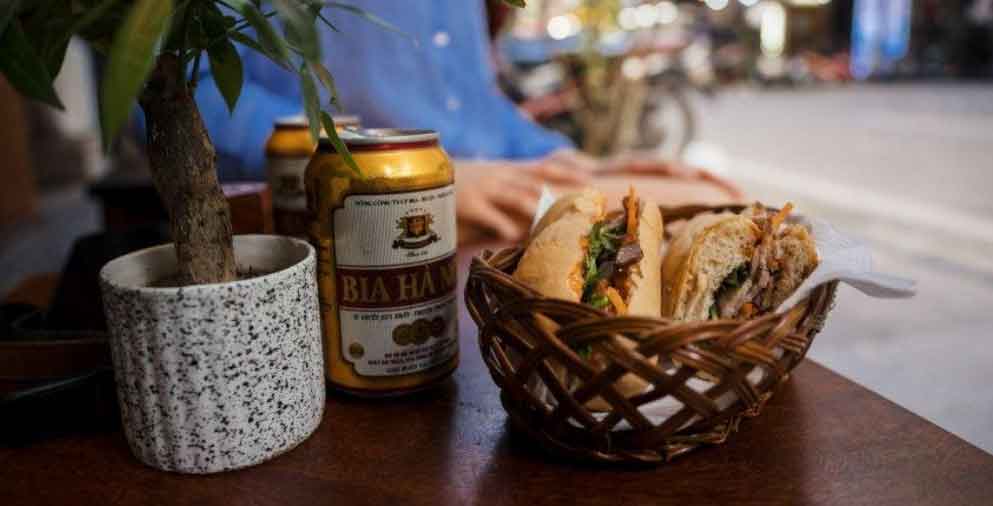Vietnam is a popular tourist and expat destination due to its low cost of living and abundance of things to see and do. However, the expense of living in Vietnam, on the other hand, can put a strain on your finances. Goods and services are, on average, less expensive in this country than in other countries. Overall, if you are looking for something more economical, life in Vietnam may surprise you.
The article will provide a few major expenses that you spend on a daily basis, as well as one or two additional expenses that you need to prepare as an expat living in Vietnam.
The costs and expenses of our research have been updated considering the actual inflation going up worldwide and its impact on the Vietnamese economy. For a detailed review about the living costs in Vietnam, you can have a look at Numbeo’s report for cost of living in Vietnam or this other updated study breaking down the budget and living costs for expats in Vietnam.
1. Rent expenses
Rent in Vietnam is considered to be reasonably priced. You can get a room as cheap as 250 USD per month (Of course, it won’t be as good as you expect). However, the prices are not always the same, as multiple factors determine how much you pay each month. Some common factors that most may take into account are the landlord’s expectations, location, and inflation. For now, I’ll stick to the matter of location so you can visualize the overall picture of the country.
To illustrate the topic about the overall cost of living for expats in Vietnam, this following video provides you with wider information about the cost of living in Vietnam and especially the expenses and rental costs for housing.
You also have cheaper options as low as 250 USD, 300 USD, and 400 USD per month for either a studio apartment or a 1-bedroom apartment. These options are available in small districts like Go Vap or Binh Thanh. If you choose to live in these districts, you will have to face the difficulties of not having the convenience you expected, which requires you to learn Vietnamese or live with a local partner to get around more easily. Also, traveling to the city center from these local districts may take around 30 minutes if the traffic is nice enough.
The districts that most foreigners choose to live in are District 2 (Known as the ex-pat community), District 1, District 3, District 4, and District 7.
2. Visa expenses
Visa fees may not seem like a big issue for most expats. But it’s not only about the fee you pay for the renewal. You will also have to take into account the flight tickets per renewal period.

The visa renewal fee doesn’t cost much, but you will need to fly out of the country to attend a visa renewal interview. The budget may vary greatly depending on the country you’re going to. Make sure you consider this when coming up with a budget plan.
3. Healthcare expenses
Vietnam’s healthcare isn’t top-notch if you are seeking a top-notch medical system like the US or the UK. However, it’s not bad, considering the price you pay for clean teeth, or a casual medical check.
The price of the service is ridiculously low. Teeth cleaning, for example, is inexpensive here. Medium-scaled to big dental clinics charge roughly $9, while several minor dentists only charge around $5.
Furthermore, using public healthcare services in Vietnam helps you optimize your budget. In my case, I only go to a public hospital if I have a friend accompanying me because the doctors here cannot speak fluent English. However, if you love Vietnam and learning the language is one of your goals, public hospitals are a decent option. You may only pay less than 5 USD per medical check to receive a consultancy service.
Health insurance in Vietnam is also great. It’s not up to the international standard, but you get what you pay. So far, I haven’t had any issues with the health insurance here. Many prices come with different packages. In my case, I pay 400 USD per year for health insurance.
4. Food expenses
Vietnamese cuisine is splendid. The taste, the flavor, the decoration, and the structure of a dish may surprise you with how creative Vietnamese could be. But other than that, it was cheap!!!
Banh Mi is the most popular dish of all. You may say that it’s the Vietnamese version of a sandwich or a hamburger. But Banh Mi brings in a unique experience. You got all the flavors within one Banh Mi: Sour, spicy, and salty. It can get you full until lunch for a morning full of energy. It was surprising that for that much within just one Banh Mi, I only needed to pay less than a dollar for the wonderful cuisine here.

Afterward, I began to get along with the breakfast culture here. A Banh Mi with a cup of iced black coffee will help you start a day in the most exciting way possible. Back when I was in France, I had to make my coffee every morning because it’s pricey there. But in Vietnam, you can get a coffee for 8.000 VND (~50 cents) or 15.000 (~75 cents). These shops have the right tool for quick coffee processing, which doesn’t take much time to wait, and I can grab my quick takeaway to start a busy day.
You also have a lot of family-owned restaurants in Vietnam. If you want to enjoy something more local every day, these restaurants are a great option. The most I have spent at a family-owned restaurant is 3 USD for a dish full of white rice, two fish, a soup, and a coke.
You can also visit a 5-star restaurant if you are used to something premium. The price may be lower or higher than what you get in the West. I won’t recommend having your meals at these big restaurants every day, but it’s not my personal experience. Therefore, make sure you come here for a few days to see how you feel about it.
5. Transportation
You won’t get to see Vietnam’s cutting-edge transportation system, but you will get to experience something distinct in exchange.
The motorcycle is the most prevalent mode of transportation. You can either rent or buy one as a foreigner. Based on your demand, the prices are reasonable. You can rent one for $50 to $100 per month, purchase a secondhand bike for more or less than $300, or purchase a brand-new premium one for roughly $1,000.

Moreover, if you want to travel within the country but you’re not so good at motorbike skills, Vietnam has something called a “sleeping bus” that can get you around the region at a very reasonable price. For example, Da Lat is a popular destination among many local people in Saigon during the holiday season. By using the sleeping bus, you can travel to Da Lat from Saigon within 8 hours during the day, or less than 6 hours at midnight. Different prices are available for basic seats and premium seats. For basic seats, you can expect to pay from around 10 USD to 15 USD for a one-way ticket. For premium seats, you can expect to pay from 20 USD up to 35 USD (The premium seat has a bigger space where you can lie down easily).
Bus tickets to travel around the city are cheap too. You can easily travel from one spot to the other with only 50 cents, or less. However, it could be hard to communicate with the bus staff because they cannot speak good English. However, we only get on the bus, hand in the ticket, and pay, then get down. Therefore, I would recommend using the bus if you have a local helping you a few times to get to know the route and the procedure. After that, it will be easier to use the public bus service by yourself.
Vietnam’s metro lines are still developing. There are only 1 or 2 of them in production right now.
Vietnam also has taxis, Grab bikes/cars, and other transportation services you can use during your stay in Vietnam. The prices vary depending on the distance.
6. Vacation
We all care about the budget for vacation too. As I mentioned above, you have the option to use the sleeping bus. Another way is to travel by airway. Flight tickets in Vietnam are cheaper in the West. Especially once you know how the market works here, you may be in luck if you can find cheap flight tickets. It’s not always doable, but it’s a tip from me. You may pay around 50 USD to 100 USD to travel by plane in Vietnam.
Hotels are cheap according to my experience. On weekdays, you may pay around 15 USD per night for a decent hotel room. On the weekend, you may expect to pay roughly 20 USD. For the premium options such as 4-star and 5-star hotels, you may expect the price to vary from 50 USD to 100 USD per night, including a good buffet, a nice hotel view, a spacious room, and potentially a swimming pool. You can either choose to experience the food at your hotel or at local restaurants. I would prefer local restaurants because a vacation to me is a chance to explore the country. It’s also a more reasonable option to secure a generous budget for other activities.
You can choose to sign up for a package tour as well. Again, prices vary greatly based on your expectation of how you want your tour to be.
These points should cover the overall budget for your upcoming trip to Vietnam. These are listed based on my experience living in Vietnam as an expat. Therefore, it might not be 100% accurate considering your personal plan in Vietnam. Make sure you spend a few months in advance to finish your own research (potentially use my sharing as a preference to get an idea of how to build a budget plan as a start), list down what you want to experience during your relocation, and book a flight ticket.




























